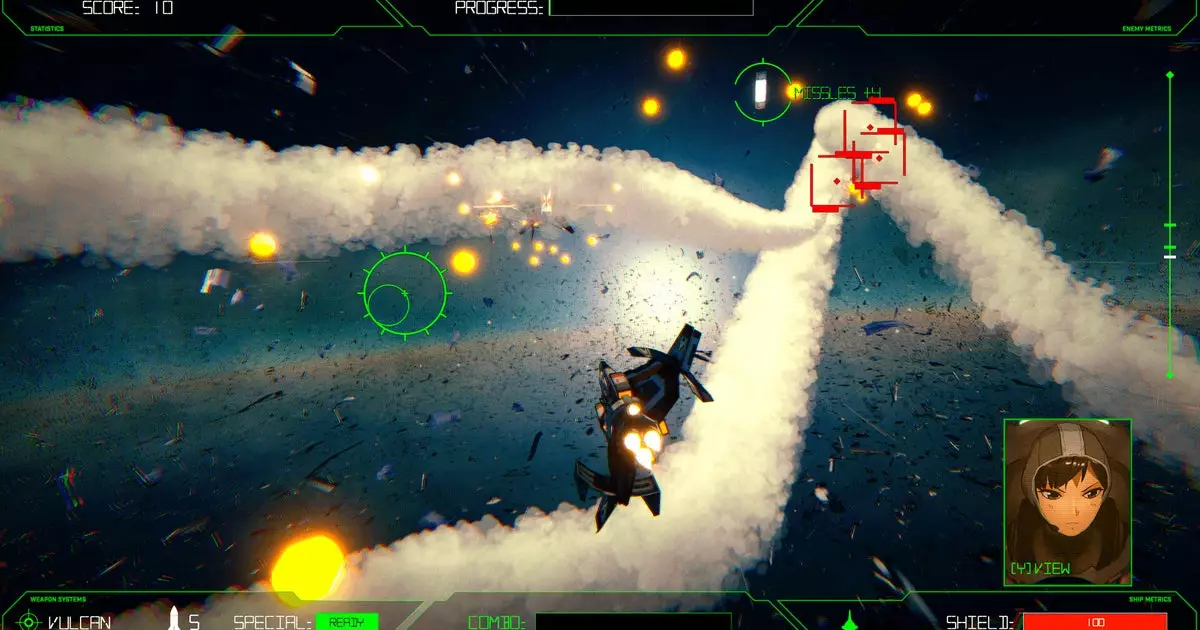Rogue Flight, an upcoming arcade space combat game, invites players into its vibrant universe, blending classic elements that evoke a nostalgic connection to the beloved games of the ’80s and ’90s. Drawing inspiration from the grandeur of prestige anime, the game aims to capture that unique aesthetic aesthetic that many gamers fondly remember. Set to release later this year, its announcement trailer has already created a buzz, teasing the exhilarating action and visual splendor players can expect.
The core gameplay of Rogue Flight promises an exhilarating blend of acrobatics and combat, allowing players to execute daring maneuvers while taking down enemies across nine meticulously designed stages. A defining aspect of the game is its branching narrative, which introduces varied paths that players can follow, enhancing replayability and engagement. Moreover, an unlockable roguelite mode introduces an added layer of challenge, potentially incorporating permadeath elements that push players to hone their skills and strategize effectively to progress.
Customization is also spotlighted, letting players tailor their spacecraft and pilots to match their playstyle, a feature that fosters personal investment in the game. While customization plays a vital role in modern gaming, the emphasis on the aesthetic and thematic elements may attract players who appreciate narrative depth and visual storytelling just as much as gameplay mechanics.
Rogue Flight places a significant spotlight on its voice cast, featuring both Japanese and English actors known for their iconic roles in anime classics such as Sailor Moon and Neon Genesis Evangelion. This deliberate choice aims to resonate with long-time fans of the genre, elevating expectations around character development and emotional engagement. However, it’s important to recognize that the impact of voice acting can vary significantly among players, with some preferring dubs and others gravitating towards subs.
While the English cast includes familiar names from popular games like Fallout 76 and Overwatch, their significance might not resonate with everyone. Regardless, the commitment to assembling a talented voice lineup speaks to the developers’ dedication to creating an immersive experience that draws players deeply into the world of Rogue Flight.
The hallmark of Rogue Flight lies not only in its fast-paced, flashy space combat but also in its potent emotional undercurrents. The juxtaposition of lively mechanics against the backdrop of melancholic narratives reflects a trend in anime that resonates deeply with audiences. The allure of piloting a mecha or a spacecraft often serves as a metaphor for personal struggles and emotional turmoil.
In a world filled with high-stakes action and vibrant aesthetics, there remains an underlying melancholy that speaks to the human experience. This reflection on sadness, combined with the physicality of piloting powerful machines, invites players to confront their own feelings of existential dread, making each battle a bittersweet reminder of the complexities of life.
Rogue Flight is more than just a nostalgic nod to arcade space combat; it encapsulates the spirit of a generation that thrived on both gameplay and narrative depth. With its promising mechanics, exceptional voice talent, and a unique emotional layer, this game prepares to establish a foothold in the gaming community upon its release. As players gear up for interstellar battles, they are bound to engage with the profound themes woven into the fabric of Rogue Flight’s narrative.

